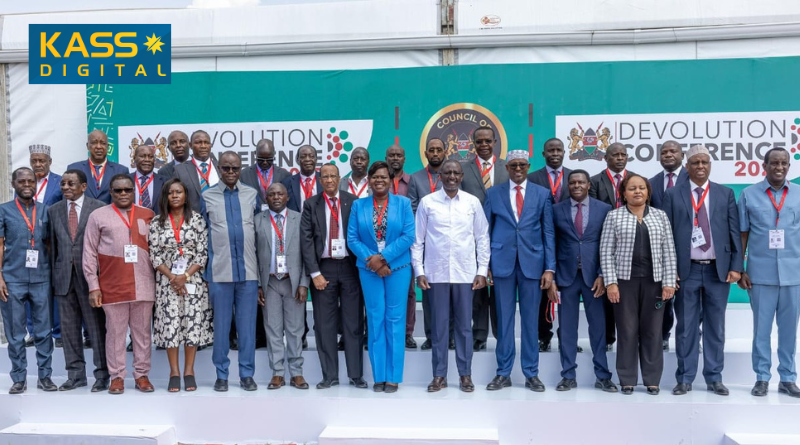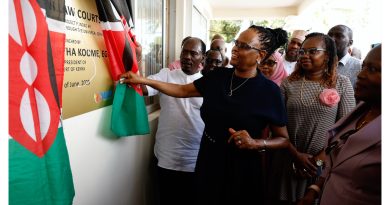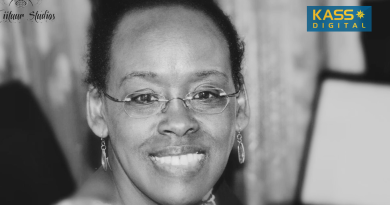Kenya’s Devolution Conference 2025 Enters Final Day With Calls for Equity and Justice
By Chemtai Kirui, HOMA BAY, Kenya
Kenya’s ninth Devolution Conference enters its closing day in Homa Bay, with more than 10,000 delegates expected to endorse a final communiqué on equity, inclusion, and social justice to guide national and county priorities.
The four-day summit, officially opened on August 13 by President William Ruto, is held under the theme “For the People, For Prosperity: Devolution as a Catalyst for Equity, Inclusion and Social Justice.” It has drawn governors, legislators, civil society leaders, development partners, and community representatives from across the country.
This is only the second biennial devolution summit since 2023 and comes as Kenya assesses the performance of its 12-year-old devolved governance system.
President Ruto on Wednesday called on counties to embrace transparency and prudent use of public resources, warning that corruption remains the greatest threat to devolution.
“In just 12 years, we have transferred KSh4 trillion to counties, fostering inclusivity through fair resource distribution and addressing marginalisation,” he said. This year’s equitable share has risen by nearly KSh30 billion to KSh415 billion under a new revenue-sharing formula, with all outstanding balances cleared.
Ruto also broke ground for the Tom Mboya University Students’ Village in Homa Bay — a 588-unit hostel set to house 2,000 students and create more than 1,500 jobs.
Plenaries and side sessions have examined how technology, such as drone-enabled health services and open data platforms, can improve service delivery. Environmental governance, youth participation, and community-based forest management were also discussed.
Kirinyaga Governor Anne Waiguru said the future of Kenya lies in devolving resources to counties. “Devolution has transformed rural areas that were once marginalized,” she told the forum. She noted that inadequate resources and delayed disbursements remain persistent challenges and urged Kenyans to confront corruption.
“It is a societal challenge that must be addressed as a whole,” she said. Waiguru highlighted Kirinyaga’s progress in agriculture and healthcare, including its status as the country’s top rice producer and strengthened dairy production through cooperatives.
She called for the full transfer of remaining devolved functions. “Counties have shown they can perform these functions. They should be empowered to meet local needs.”
The conference serves as a platform to assess how counties are delivering public services, managing resources, and addressing local challenges.
Some counties have expanded health coverage, built schools and roads, and improved local economic programs, while others continue to face budget constraints and delayed transfers from the national government.
Yesterday at State Lodge, Homa Bay, Ruto met county leaders and assented to the County Allocation of Revenue Bill, 2025, and the County Public Finance Laws (Amendment) Bill, 2023.
“The significant increase underpins our commitment to mobilising more resources to support devolution and boost service delivery at the grassroots,” he said.
The President also commended Homa Bay Governor Gladys Wanga for delivering the new County Government headquarters.
Wanga said the facility will serve as the central hub for county government operations and link national and county services. “The facility is expected to improve service delivery to residents,” she added.
Former Prime Minister Raila Odinga delivered Thursday’s keynote, stressing the importance of devolution and local governance. “I believe in devolution. I believe in a balance of power between Nairobi and the counties,” he said.
He called for stronger county executives and assemblies, adding that county governments should be overseen by county assemblies, not the Senate.
“It is a waste of time for governors to appear before the Senate in Nairobi. Decisions affecting a county should be dealt with at the county level,” Odinga said. He also emphasized the economic role of counties. “People want counties that are economic powerhouses, not mere administrative units.”
What to expect today
The final day will focus on “Financing Equity and Inclusion,” with sessions on resource allocation, small business financing, and fiscal prudence.




